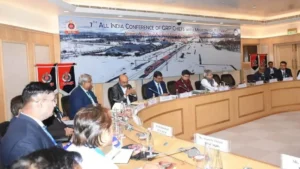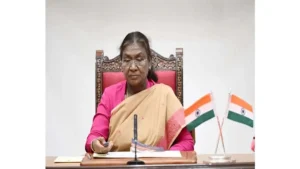The United Nations Climate Change Conference (COP29) in Baku concluded with a controversial agreement to triple climate finance for developing nations to $300 billion annually by 2035. This falls drastically short of the $1.3 trillion annually requested by developing countries until 2030. The deal was met with strong opposition from India and other developing nations, who criticized both the process and the outcome, describing the financial pledge as insufficient and unfairly distributed.
India’s Strong Opposition
India, one of the vocal critics of the deal, rejected the proposed financial goal, labeling the sum “abysmally poor” and inadequate. Chandni Raina, adviser to the Department of Economic Affairs, emphasized the unfairness in distribution, highlighting that developed countries, historically responsible for the majority of greenhouse gas emissions, were not held accountable. India also condemned the process, accusing COP29 of being “stage-managed” and undermining the inclusivity of the decision-making process.
Lack of Inclusivity and Equity
India’s concerns were echoed by other developing countries like Nigeria and Bolivia, who argued that the agreement fails to meet the principles of equity and differentiated responsibilities outlined in the Paris Agreement. These nations argue that relying on private and multilateral finance mechanisms diverts responsibility from developed countries. The financial mobilization via Multilateral Development Banks was seen as a step backward from previous goals, shifting the burden onto developing nations.
Concerns Over Delayed Implementation and Effectiveness
The $300 billion financial target, which is set to begin in 2035, has raised concerns due to its delayed implementation. Many nations argue that they cannot afford to wait more than a decade for the resources they urgently need to combat the growing climate crisis. Experts like Vaibhav Chaturvedi from the Council on Energy, Environment, and Water pointed out that the agreement jeopardizes the 1.5°C global temperature target, as effective mitigation efforts cannot succeed without immediate financial and technological support.



 7th All India Conference of GRP Chiefs C...
7th All India Conference of GRP Chiefs C...
 MoEFCC to Organise ‘Him-CONNECT’ at WSDS...
MoEFCC to Organise ‘Him-CONNECT’ at WSDS...
 National Arogya Fair 2026 to Be Held in ...
National Arogya Fair 2026 to Be Held in ...








